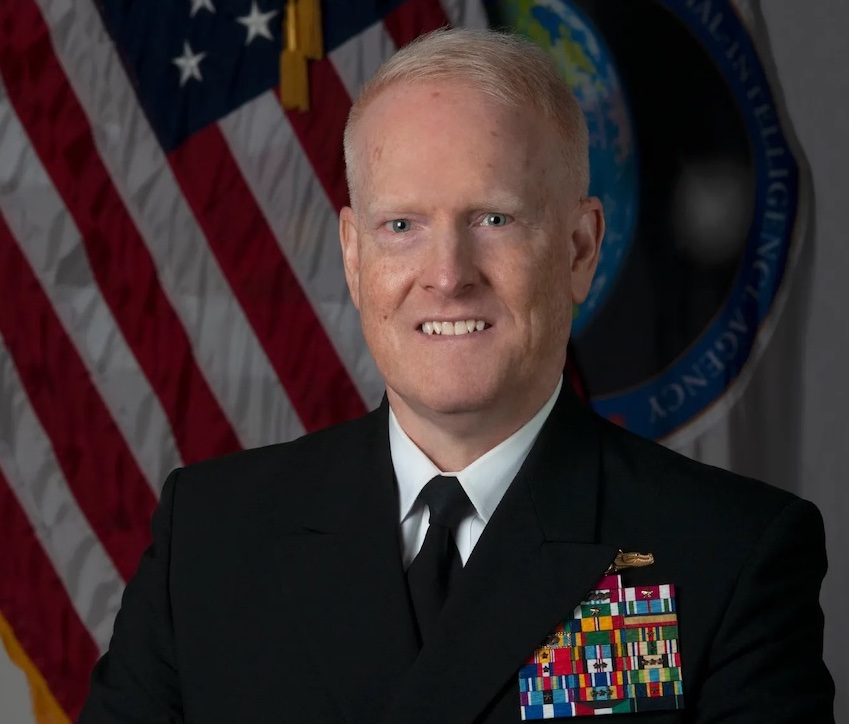Latest News
NGA Director Whitworth: The Space Domain is Increasingly Important to Assess Behavior

Vice Admiral Frank Whitworth, director of the National Geospatial-Intelligence Agency. Photo: NGA
ST. LOUIS—As space becomes increasingly competitive, the National Geospatial-Intelligence Agency (NGA) is helping its Defense Department partners keep tabs on the space domain, the agency’s director said on Monday.
“And make no mistake, distinguishing friendly from unfriendly behavior in space has become particularly important to us,” Vice Adm. Frank Whitworth said at the annual GEOINT 2023 Symposium here in St. Louis.
After assuming leadership NGA in June 2022, Whitworth changed the agency’s motto to “Know the World, Show the Way…from Seabed to Space.” The reason for the change corresponds to the agency’s “expanding responsibilities” that go beyond mapping and sensing Earth’s surface, he told attendees, adding that it also sends a message to Congress, the American people and the international community that space is one of NGA’s chief responsibilities.
Whitworth said he spoke with the heads of the U.S. Space Force and U.S. Space Command (USSPACECOM) about his proposed changes to the motto to ensure it mirrored their vision and it did.
Later, during a media roundtable, Whitworth said that NGA’s work with USSPACECOM is similar to the support the agency provides any Combatant Command.
“And so, for us, it really kind of begins with them in terms of informing that combatant commander of what’s going on and how to distinguish objects, behaviors, etcetera,” he said.
U.S. Space Force is training and equipping personnel to “affect a constellation” in space and NGA’s work focuses on “collection orchestration,” which Whitworth defines as tasking the collection of data to meet national needs.
NGA is reviewing whether it has the right number of billets in the agency for Space Force personnel and if the right number of agency personnel are focused on Space Force’s needs, Whitworth said.
“I sense that this year will be a year of definition as to our official relationship with U.S. Space Force,” he said. “I want to be a place where this team is effective from the get-go. Not something that we kind of lapse into two or three years from now.”
Whitworth was asked if NGA gets its space-related data from the Space Surveillance Network, which the U.S. Space Force uses to detect and track objects orbiting Earth.
James Griffith, director of Source and Operations Management within NGA, answered that this isn’t new work for NGA but the agency’s help is becoming increasingly important for the U.S. Space Force and USSPACECOM.
“And so, it’s really about how do we ensure that the enterprise maintains the quality and expertise necessary to do the work at the scale that’s going to be necessary to meet U.S. government priorities,” Griffith said.
Chris Scolese, director of the National Reconnaissance Office, the agency that acquires satellites and imagery that senses the Earth, told attendees on Tuesday that NRO makes the commercial imagery as broadly available as possible, including for the U.S. Space Force.
This story was first published by Via Satellite sister publication Defense Daily.
Get the latest Via Satellite news!
Subscribe Now